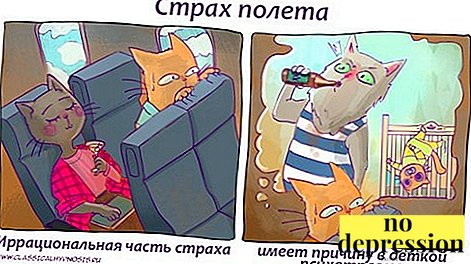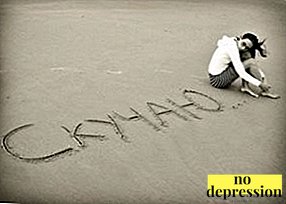Today, the term "phobia" is a common concept, which often ordinary citizens call any manifestation of intense fear. However, this is not quite the correct interpretation of the essence of this disorder. In the understanding of academic minds, a phobia implies a long-term presence of irrational uncontrollable obsessive fear or a feeling of baseless uncontrollable anxiety in a person.
From the point of view of psychoanalytic teachings, the term “phobia” means a long-term neurotic disorder characterized by excessive anxiety combined with the patient’s hysterical reactions. In the understanding of physicians practicing various hypnosis techniques, a phobia is the standard human response — fear. However, it occurs in the absence of adequate stimuli that could initiate the start of the body’s natural response to danger.

Let's illustrate with an example. The main manifestation of social phobias - uncontrolled bouts of fear that occur when in the human community. Thus, a person who is dependent on a social phobia, having noticed a laughing or angry person in a crowd, realizes that this fact does not deserve special attention. However, regardless of his will, the signs of panic begin to show: his legs are weakened, his limbs tremble, his voice disappears. At the same time, a person is not able to take control and control the symptoms of panic fear, because a phobia has captured his mind and controls the body.
The phobia must be differentiated from the natural reaction - fear, which covers when confronted with a real source of threat.
For example, this is the situation when an object in a crowd demonstrates obvious hostility and aggression, threatening to cause physical injury. In this state of affairs, emerging fear is a normal manifestation of a healthy instinct for self-preservation. It is designed to protect people from a source of danger, helps to mobilize all the resources of the body to repel harmful effects.
Also, one should not confuse a phobia with some manifestations of a person’s character, for example: cowardice.So an indecisive and insecure person, assessing the existing probability of failure of his speech, acts according to the habit of escape, which was formed due to the nature of the flaws. Also, an overly cautious and suspicious person can be terribly afraid of being in public, because his life credo can be described with the words: the whole world around us carries a mortal danger.
Although both phobia and personality characteristics of a person often manifest themselves in life with the same symptoms, rewarding a person with obsessive uncontrollable fear, methods for overcoming and correcting states are significantly different. This can be explained by the fact that inherently excessive caution is the result of some omissions made during the formation of character or arising from objective circumstances in a person’s personal history.
At the same time, a phobia is the result of damaged links in the human nervous system, the breaking of which made it impossible to act clearly, logically, consistently. Phobia is a consequence of the penetration of specific "viruses" into the human psyche. Such inconspicuous "pests" often sneak into the deep bowels of the subconscious in early childhood. These "viruses" methodically destroy the human nervous system, forming a destructive program of thinking and behavior.
It is on the detection and subsequent destruction of "viruses" that the work of the hypnotherapist is focused. Hypnosis is a universal tool that allows you to easily make a long journey into the past of a person, where information about the moment of penetration into the psyche of these malicious "viruses" is stored. “Returning” to the past, the doctor establishes the core of the problem and “on the spot” corrects the erroneous links in the life program.
If the cause of obsessive fear is caution transmitted from the ancestors or cowardice acquired over the years, then the hypnotherapist's task is to rid the person of these negative components of character.
Cowardice does not allow the subject to live in even the slightest reasonable risk. Fearfulness and timidity do not allow a person to show his talents and reveal his potential. Cowardice does not allow a person to build a successful career, create and expand a business. This quality - the hardest anchor, chaining a person forever in the abyss of poverty and misfortune. Pathological fearfulness and lack of healthy courage are fertile ground for the emergence of a subject of other negative properties - envy, jealousy, aggressiveness, inability to exist in society.
It is for this reason that the fear imposed by cowardice requires immediate correction, as well as the irrational anxiety that has arisen due to failures in the nervous system. It should be noted that phobia and pathological cowardice often complement and “decorate” each other, thereby enhancing the feelings of fear from their owner.
Therefore, in order to carry out effective treatment of phobias, a visit to a hypnotherapist is a reasonable and vital action for all people enslaved by pathological fear. After all, only a specialist can establish the true instigator of the anomalous state and develop ways for the complete release of obsessive fear from the clutches.



